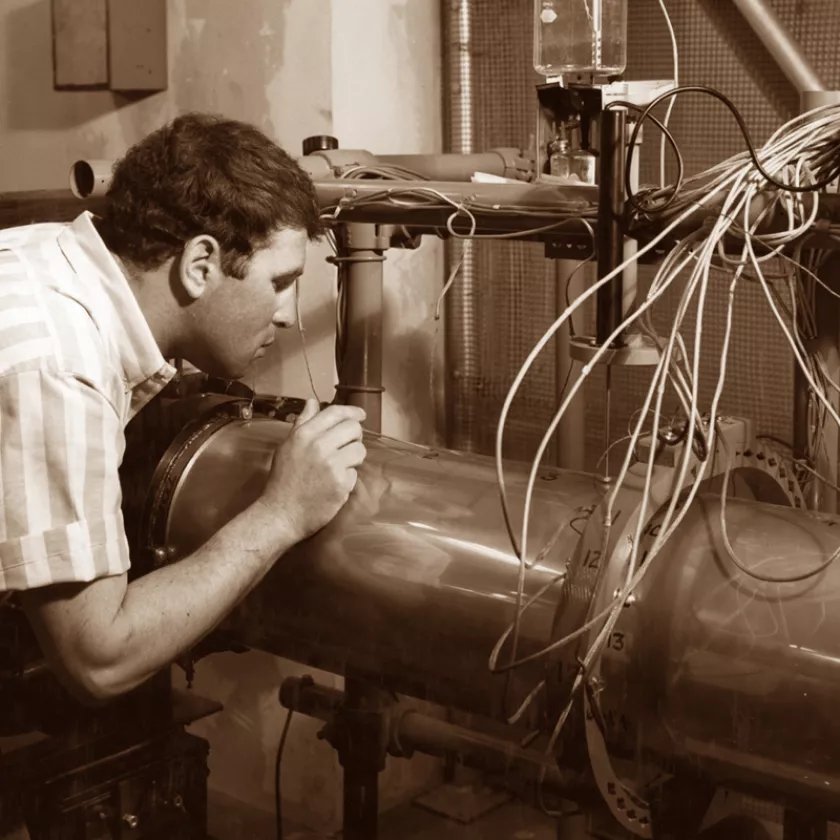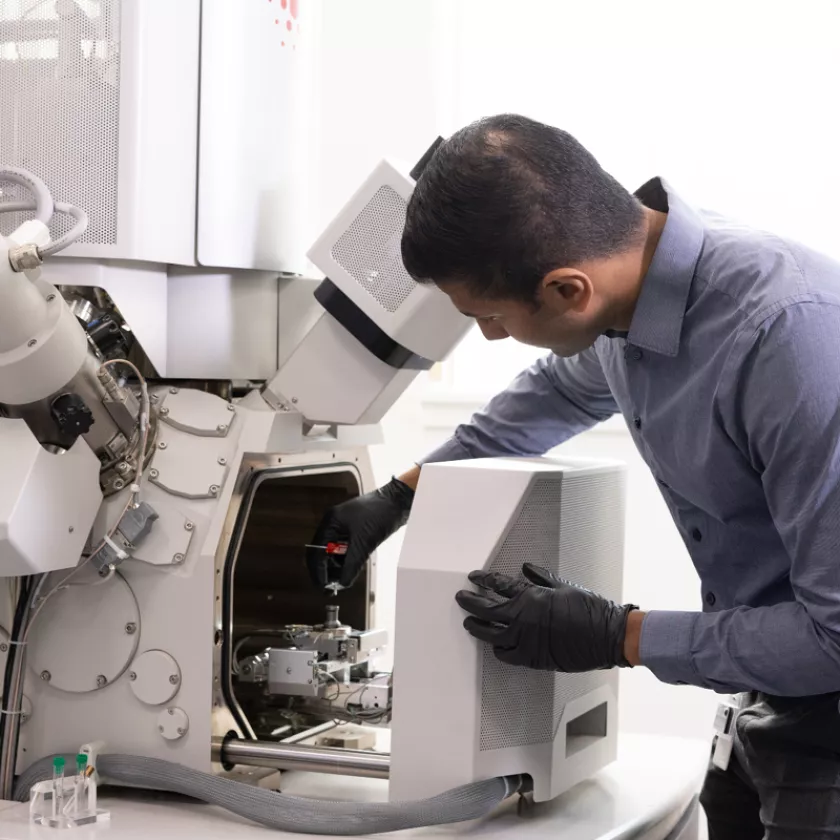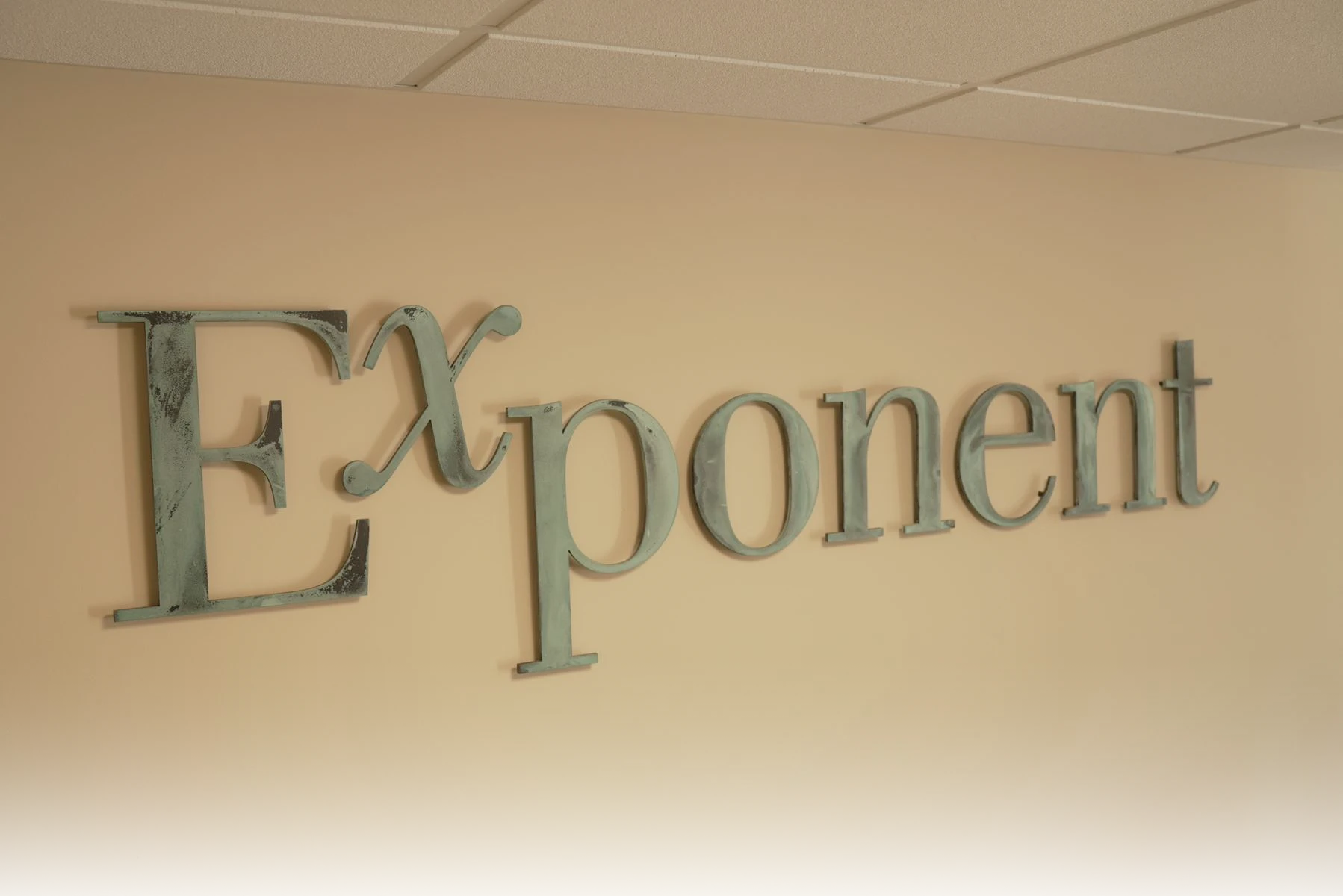
1970s
On the Scene of Major Catastrophes
After the founding of Failure Analysis Associates in 1967, Exponent continued to expand our accident investigation services in the 1970s while also responding to the increased engineering requirements of the utility and nuclear power industries.
1974
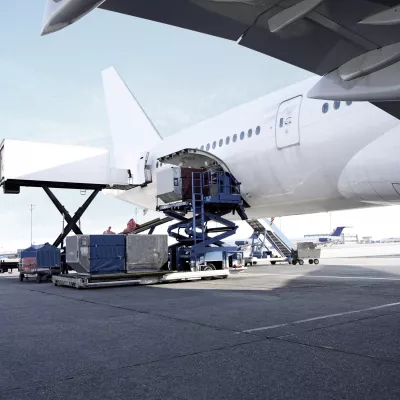
Turkish Airlines Crash
Turkish Airlines Flight 981 had just finished loading its cargo bay at Orly Airport in Paris. A baggage handler was having trouble shutting the cargo door but managed eventually to "close" it. Twelve minutes later the DC10 aircraft crashed in a forest 21 miles away. Exponent determined that the door latching mechanism was deficient because the handle could be forced "closed" even though the door locking mechanism was not properly engaged.
1978

Amoco Cadiz Oil Spill
The Supertanker Amoco Cadiz ran aground off the coast of France, causing one of history's largest oil spills. Exponent was on-scene for the spill investigation and our engineers were retained to determine the cause of the system failure, as well as evaluate effects of the spilled oil. The grounding occurred due to the hydraulic-mechanical failure of the steering system, and Exponent determined the cause of the system rupture.
1979

Kemper Arena Collapse
The Kemper Arena in Kansas City had just hosted the Republican National Convention. During a violent rainstorm, the roof of the massive building collapsed on June 4, 1979.
Exponent inspected the debris and zeroed in on the steel truss connections in the flat portion of the roof between the famed Space Frames, which held up the roof. The issues were corrected, and the arena re-opened within a year.
1980s
Expanding Our Disciplines for Strategic Growth
Exponent added civil engineering, structural engineering, electrical engineering, biomechanics, data analysis and statistics, human factors, and visual communication services, helping to extend our multidisciplinary approach to our clients' toughest challenges.
1980

Alexander Kielland Floating Hotel Platform Accident
On the evening of March 27, 1980, the Alexander L. Kielland floating hotel platform in the North Sea unexpectedly tilted. As openings filled with water, the platform capsized. 123 crewmen lost their lives. Exponent's investigation of this event involved stress analysis, fracture mechanics, and hydrodynamic stability analysis of the platform — findings have since been applied by the industry to prevent a similar tragedy.
1981

Hyatt Regency Walkway Collapse
In 1981, the Hyatt Regency Hotel in Kansas City hosted a Friday evening dance party, wherein two walkways supported dozens of partygoers overlooking the festivities. The walkways collapsed, killing 114 people. Exponent engineers sifted through the wreckage for four days and concluded that the collapse occurred when a welded beam, which supported one of the walkways, failed.
1982

World Airways Crash
World Airways Flight 30H was on approach for landing at Boston's Logan Airport. The aircraft touched down long and could not stop before bounding over a sea wall and into Boston Harbor. Exponent analyzed information from the flight data recorder and produced a computerized animation overlaid with the actual cockpit voice recording. The animation depicted a "pilot's eye" view of the approach, touchdown, and rollout of the plane, dramatically illustrating the icy plunge into the sea.
1983
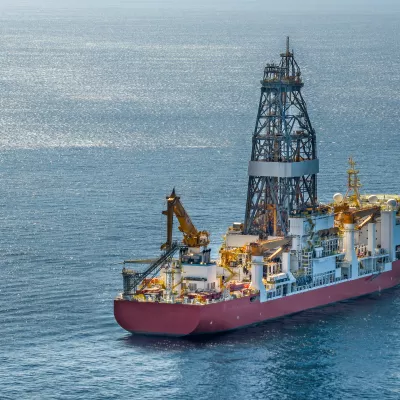
Glomar Java Sea Drillship Capsize, South China Sea
The drill ship Glomar Java Sea was caught in a typhoon in the South China Sea east of Vietnam. The 400-foot oil exploration ship was unable to survive the storm and sunk, with 81 people aboard. Exponent was called in to analyze the causes.
1983
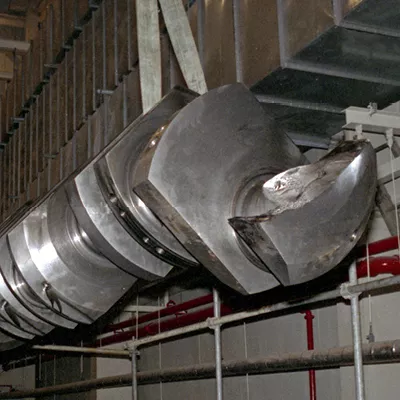
Shoreham Nuclear Power Station Analyses
On August 12, 1983, the crankshaft in one of the Shoreham Nuclear Power Station generators snapped during testing. Exponent subsequently performed first-principles analyses of the design of many components for emergency diesel engines. Exponent engineers developed specialized procedures for these investigations that are still in use at U.S. nuclear plants today.
1986
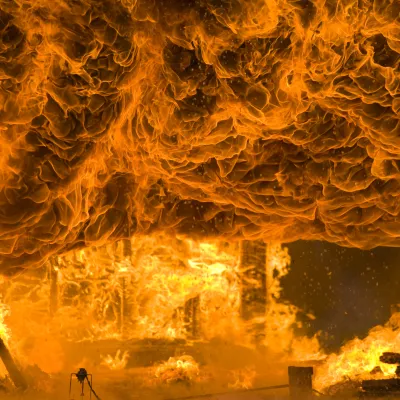
DuPont Plaza Hotel Accident
A New Year's Eve celebration at the DuPont Plaza Hotel in Puerto Rico ended up with explosions destroying the building and nearly 100 people killed. Exponent engineers were called to examine the accident and were able to confirm that arson was the cause of the fire. Damage and death were caused by rapidly spreading flames, not by smoldering materials.
1987
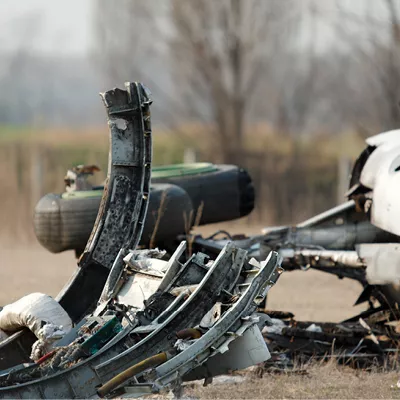
Northwest Airlines Crash
A Northwest Airlines jetliner carrying 155 people crashed during takeoff from the Detroit Metropolitan Airport, killing two people on the ground and 154 people on-board the plane. The only passenger to survive was a four-year-old girl. Exponent engineers performed a complete accident reconstruction using aerodynamic models and a computer simulation to show that the flaps required during normal takeoff were never deployed.
1988
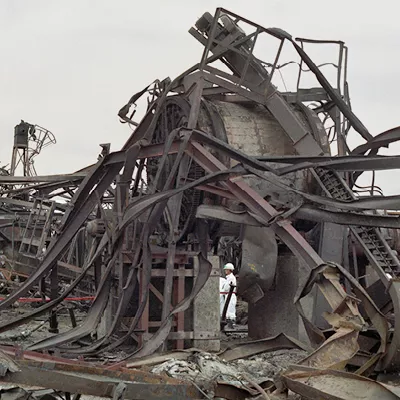
PEPCON Explosion
A massive fire and a series of explosions, the largest exceeding the equivalent of 1.5 million pounds of TNT, destroyed an ammonium perchlorate chemical plant in Henderson, Nevada, killed two people, and caused more than $70 million in damages to the surrounding community. Exponent concluded that a leak in a natural gas pipeline that passed underneath the plant contributed to the explosion.
1988
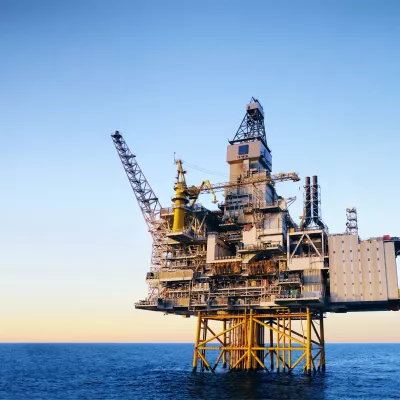
Piper Alpha Oil Platform Explosion
Occidental Petroleum's Piper Alpha was a billion-dollar oil platform located in the North Sea off the coast of Scotland. An explosion on the platform resulted in a fire that destroyed the structure and killed 167 people. Exponent participated in the public inquiry conducted by the British Government under Lord Cullen.
1988

Suzuki Samurai Dispute
In 1988 the Suzuki Samurai was alleged to be unsafe by Consumers Union, resulting in a petition to order a recall of the vehicle by the federal government. Exponent examined Consumers Union's test procedures and demonstrated that the driver's actions greatly influenced the test, and that the allegations were not founded. Ultimately, the government rejected the petition to recall the Samurai.
1989
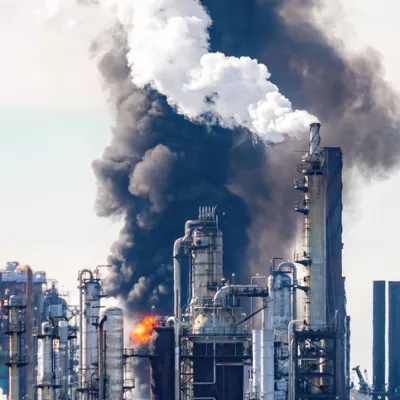
Phillips Petroleum Explosion
The Philips Petroleum polyethylene plant near Houston exploded when one of the reactors leaked a large amount of combustible material, killing 23 people and causing an estimated $1.5 to $2 billion-dollar loss. Exponent performed an accident investigation and found that a large amount of combustible material was released by the reactor, resulting in the failure and subsequent tragedy.
1990s
Always Ahead of the Curve
We broadened our sphere of inquiry to include the predictive and preventative by bringing engineering and scientific solutions to industry and expanding the breadth and depth of our work impacting the environment and human health.
1991
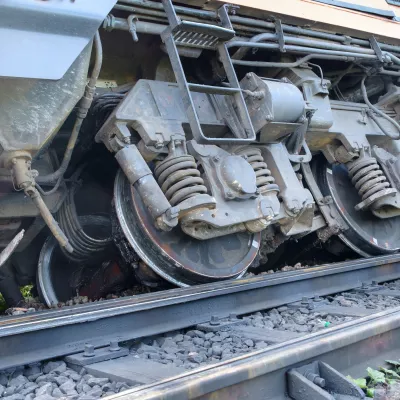
Dunsmuir Train Derailment
A 131-ton tank car derailed near the town of Dunsmuir, California, and landed upside down in the Sacramento River. The tank car ruptured and spilled almost 20,000 gallons of pesticides into the water. Engineers from Exponent were called to inspect the tank car and provide modeling expertise for derailment accidents.
1991
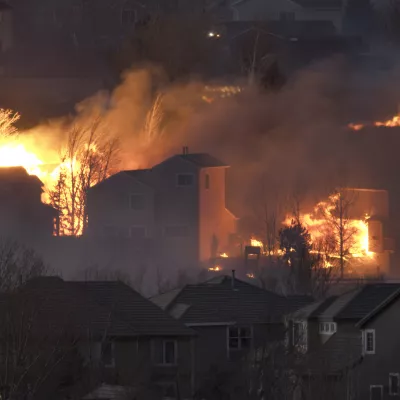
Oakland Hills Fire
A two-day fire storm swept through the Oakland hills above the San Francisco Bay. The fire killed at least 24 people, injured 148, and caused damages in excess of $2 billion. Engineers at Exponent worked with homeowners and contractors to identify and restore usable portions of building foundations to speed reconstruction and reduce repair costs.
1992
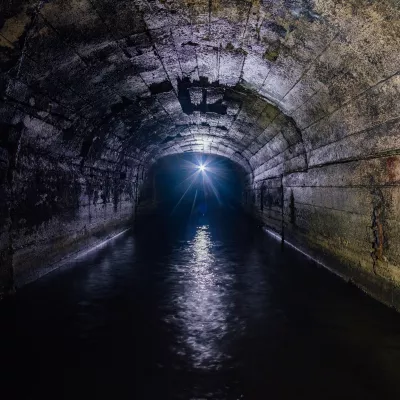
Chicago Flood
On April 13, 1992, over 200 million gallons of water surged through an extensive series of underground tunnels, affecting more than 30 major buildings, including City Hall and the financial markets. Lower levels of major office high-rises held up to 40 feet of water, and the city center was evacuated out of fear that electrical and utility connection failures could endanger lives. Exponent's engineers performed a root cause investigation and determined that workers, who were replacing wooden pile clusters at a bridge pier and had no knowledge of the existing tunnel system beneath them, inadvertently tore a 20-foot hole in the tunnel.
1992
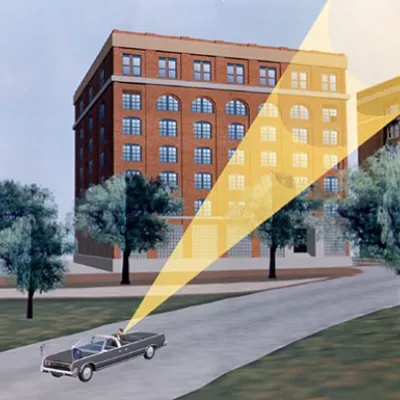
United States v. Lee Harvey Oswald
The assassination of President John F. Kennedy on November 22, 1963, is one of the world's greatest mysteries. In 1992, Exponent engineers and scientists re-examined some of the evidence for the American Bar Association's mock trial presentation: "The U.S. v. Lee Harvey Oswald." Our study of the gunshots and the paths of the bullets showed that an assassin on the sixth floor of the Texas School Book Depository could, alone, have completed the murder.
1992
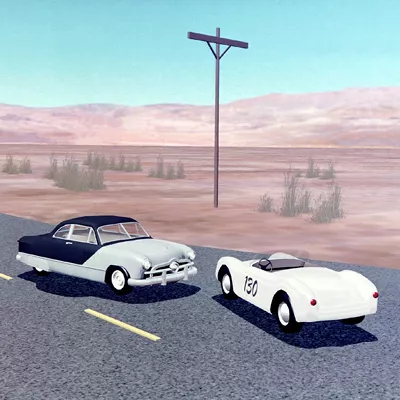
James Dean Accident Reconstruction
On September 30, 1955, actor James Dean was killed in a two-car accident near Paso Robles, California. The police reported that Dean was speeding at 70 mph at the time of the accident. 35 years later, Exponent was asked to reconstruct the crash for the NBC television series "What Happened?" Exponent found evidence that Dean's vehicle was traveling 55-60 mph at the time of the accident, which was most likely caused by an oncoming driver turning left in front of him.
1992
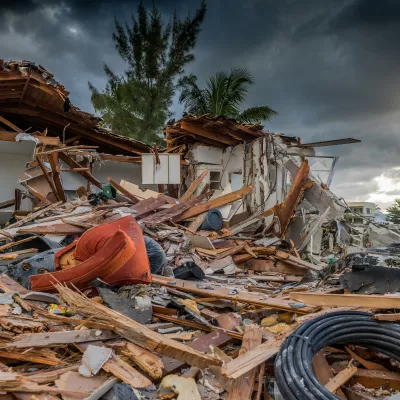
Hurricane Andrew Damage Assessment
In August 1992, Hurricane Andrew swept through the southeast U.S., causing billions of dollars of damage. During the aftermath, Exponent engineers were asked to assess the extent of damage to two 400-ft-tall reinforced concrete chimneys at an electrical power plant in south Florida. Exponent engineers, working under extreme time pressure, assisted in analyzing the demolition procedures to reduce the risk of collateral damage during demolition.
1992

NBC "Dateline" Investigation
NBC "DATELINE" ran a story purportedly showing a collision between a passenger vehicle and the 1973-1987 GM C/K pickup truck at 30 mph, which resulted in a fire. The NBC investigator noted that a "small hole was punctured in the fuel tank," which initiated the fire. Exponent engineers investigated the test performed for NBC by The Institute for Safety Analysis (TISA). Exponent's analysis found that TISA used rocket motors in the crash test to ensure that the truck would ignite upon impact. In February 1993, NBC "DATELINE" retracted their allegations.
1994
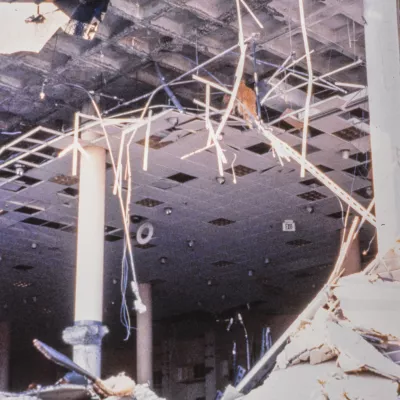
Northridge Earthquake Investigation
During the aftermath of the January 1994 Northridge earthquake, Exponent engineers volunteered as Safety Assessment Evaluators with California's Office of Emergency Services. Our earthquake engineers provide post-earthquake investigations to identify the causative mechanisms resulting in structural damage, failure, or collapse.
1994

Saginaw River Contamination
In 1994, the State of Michigan, the Federal Government, and the Saginaw Chippewa Tribe sued an industrial company and municipalities to recover natural resource damages resulting from releases of polychlorinated biphenyls (PCBs). Exponent's work in this case culminated in the restoration of over 400 acres of Great Lake coastal wetland, the funding of a nature center at a national wildlife refuge, and establishment of a restoration fund for further research.
1995
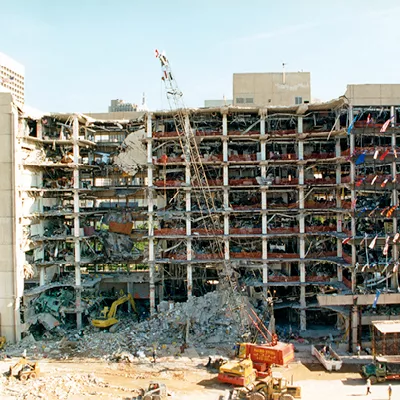
Murrah Federal Courthouse Bombing, Oklahoma City
On April 19, 1995, Exponent engineers were called to the site where a 4,800-pound bomb, concealed in a rented truck, exploded in downtown Oklahoma City at the Murrah Courthouse, killing 168 people. Exponent assisted in the rescue effort and determined how to safely remove debris from the remaining structure and formed the basis of a set of design principles called "defensive architecture" to minimize future loss of lives and property.
1995
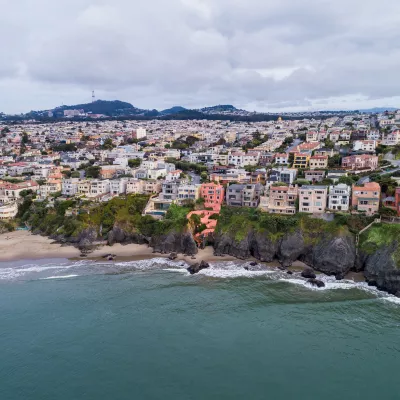
Sea Cliff Incident
In 1995, winter rains and construction activities combined to cause a major sewer pipe to fail in the prestigious Sea Cliff area of San Francisco. One home was destroyed when it fell into the 250-foot wide by 40-foot-deep pit created by the erosion. Exponent investigators assisted the City of San Francisco in determining the cause of the sewer failures. The findings indicated that cracks in the sewer developed when a series of events converged, including constriction of stormwater flow in pipes and construction activities around the sewers.
1998
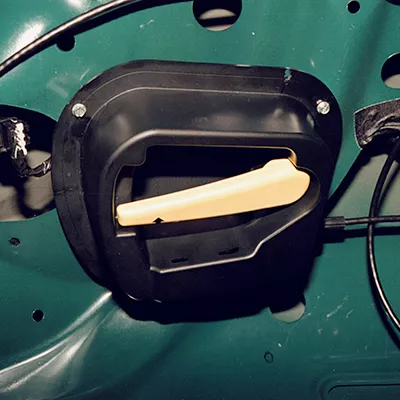
Trunk Protection
At the request of a vehicle manufacturer, a study was conducted in which various devices were tested with young children to determine the one most likely to be used by them to escape from inside a vehicle's trunk. Based on the testing, the lever-style handle was the device chosen for production. The project ultimately involved nearly 400 children, primarily ages three through six, and their parents, who were present throughout the testing.
1999
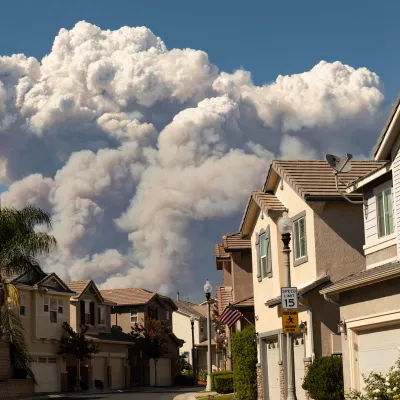
Olympic Pipeline Spill
Exponent participated in every aspect of the failure analysis after a 16-inch pipeline owned by the Olympic Pipeline Company ruptured and spilled over 5,000 barrels of gasoline in Washington on June 10, 1999. Exponent then determined that a contractor working in the area some years prior to the rupture had mechanically damaged the incident pipeline, and the crack associated with this mechanical damage initiated the failure.
1999
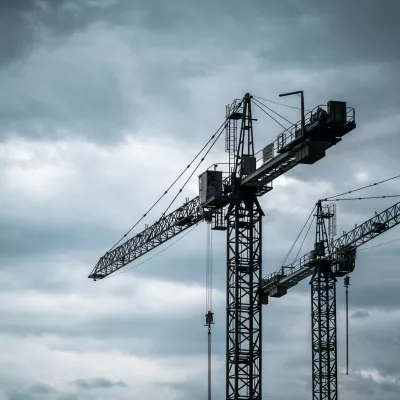
Miller Park Crane Investigation
While lifting a retractable roof section weighing approximately one million pounds, the Miller Park crane in Milwaukee, Wisconsin, failed and tragically killed three ironworkers. Exponent launched an investigation and concluded that the failure occurred because of the decision to make the lift in winds that were much higher than ever anticipated in the design, which clearly exceeded the instructions from the crane manufacturer.
2000s
Investigating Past Causes to Minimize Future Risks
Exponent continued to provide proactive solutions for some of the most pressing human health, environmental, engineering, and regulatory issues.
2000
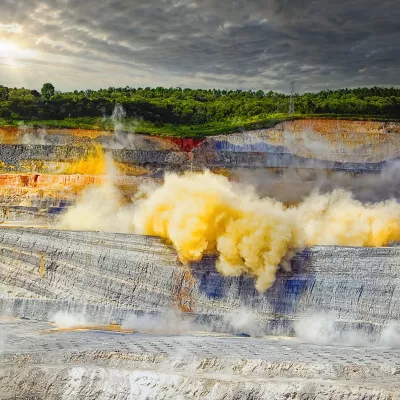
Red Dog Mine Risk Assessments
Exponent conducted a multidisciplinary assessment of the effects of fugitive dust from the Red Dog mine, haul road, and port in Northwestern Alaska. Our environmental engineers and scientists evaluated transport and fate and conducted human health and ecological risk assessments. Exponent also developed a risk management plan to minimize the potential for effects of dust on human health and the environment over the life of the mine.
2001

World Trade Center 9/11 Collapse Analysis
In the months following the September 11 tragedy, Exponent was retained by the insurers of the WTC to conduct a detailed study of the collapse and debris patterns for each tower and analyze damage to the sub-grade infrastructure.
2001
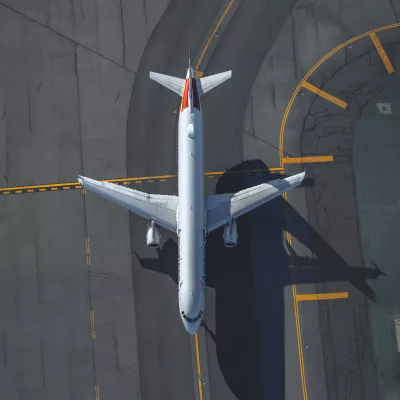
American Airlines Flight 587
American Airlines flight 587 crashed into a residential area of Queens, New York, shortly after takeoff from JFK International Airport. Exponent assisted with the investigation of the crash, including flight path reconstruction, evaluation of aerodynamic loads on the vertical tail of this aircraft during the crash, and aerodynamic loads on the tails of other aircraft during past in-flight upsets.
2004
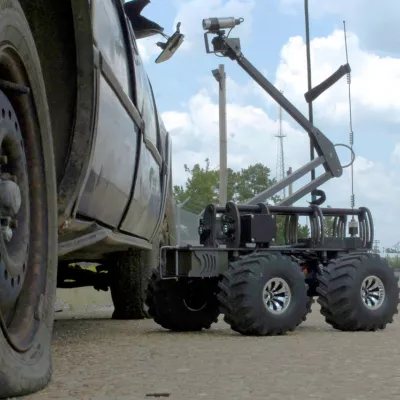
MARCbot Robot Prototyping
Working with the U.S. Army Rapid Equipping Force (REF), Exponent engineers on the ground conceived of and prototyped a low-cost robot that could effectively perform the singular task of suspicious object investigation. Ultimately over 1,000 production MARCbots were manufactured by Exponent for use in Iraq, and later, in Afghanistan.
2009

Toyota Unintended Acceleration Claims
Beginning in 2009, Toyota consumers reported that their vehicles had rapidly accelerated without driver input. In late 2009, Exponent was retained by Toyota to provide an independent investigation surrounding the incidents of sudden, unintended acceleration. Exponent's investigation concluded that the electronics, software, and electromagnetic radiation were not the root cause of the reported incidents of unintended acceleration in the Toyota vehicles evaluated. The National Highway Traffic Safety Administration and NASA performed their own independent tests and confirmed Exponent's findings.
2010s
Committed to Safety and the Environment
We leveraged decades of experience to help our clients innovate, improve operational safety, and enhance local ecosystems.
2010
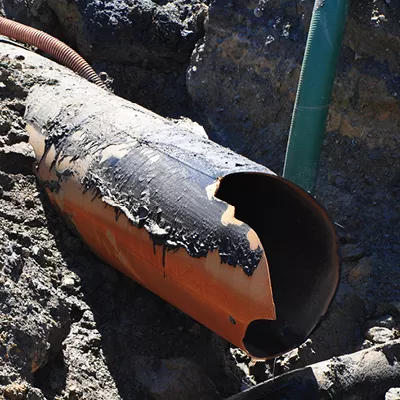
PG&E Pipeline Rupture
A 30-inch diameter natural gas transmission pipeline (Line 132) owned and operated by Pacific Gas & Electric Company (PG&E) ruptured in a residential area in San Bruno, California. Exponent was retained by PG&E to perform a root cause analysis of the accident. Exponent concluded that no single factor led to the rupture. Rather, a unique combination of structural and metallurgical factors precipitated the tragedy.
2010
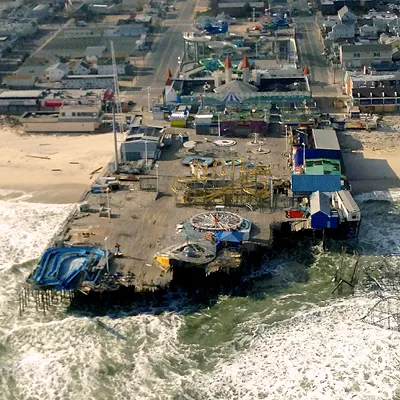
Superstorm Sandy Recovery Efforts
Exponent's engineers and scientists worked with a wide variety of affected commercial, government, and residential clients to evaluate structural damage, assess building envelopes, and assist with the recovery. Our team also evaluated electrical power systems for major agencies to help get facilities up and running quickly. Projects included commercial complexes, transportation hubs, medical complexes, industrial facilities, and residential properties.
2014
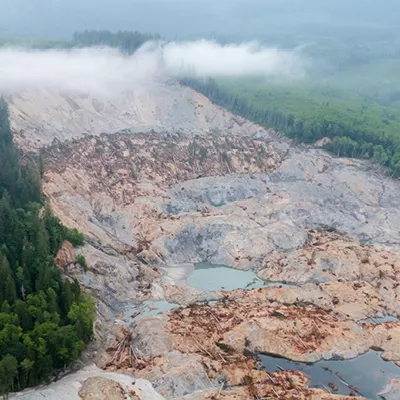
The Deadliest Landslide
The collapse of a hillside triggered the single deadliest landslide event in U.S. history, engulfing 49 homes and killing 43 people in the Steelhead Haven community near the town of Oso, Washington. Exponent civil engineers, geologists, and hydrogeologists were called in to assess drainage and other potential contributing factors to the disaster, including forest harvesting and the plateau's three distinct aquifers.
2015

Lumber Liquidators: 60 Minutes investigation
A CBS 60 Minutes investigation claimed that Lumber Liquidators sold laminate flooring from China with levels of formaldehyde higher than permitted under California law. Exponent performed statistical modeling to determine possible exposure to customers and associated acute and chronic health risks. The risk assessment indicated that the Lumber Liquidators Chinese laminate was well below recognized levels of significant health concern.
2017
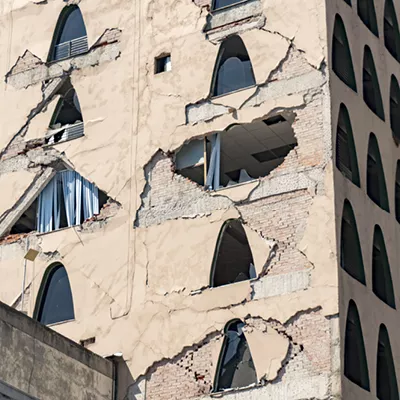
Mexico Earthquake Damage Survey
Exponent earthquake engineering experts conducted a damage survey as part of the Earthquake Engineering Research Institute reconnaissance team in Mexico City following the 7.1-magnitude Puebla Earthquake. The Exponent team examined over 700 buildings to diagnose the failures in heavily damaged and collapsed buildings.
2018
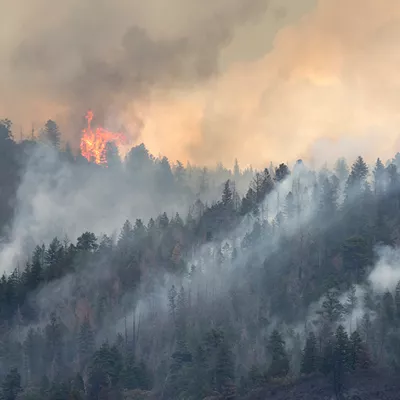
PG&E Infrastructure Improvements to Prevent Fires
Following the deadly Camp Fire of 2018, Exponent empowered PG&E with a comprehensive real-world risk model to focus their infrastructure improvements. Exponent assembled a multidisciplinary team to create a detailed science-based assessment of towers, poles, and wires throughout PG&E's infrastructure. We then created an extensive data model to predict not only where failures were likely to occur, but also where they'd be most dangerous.
2020s
Harnessing the Power of Technological Wonder
Today, Exponent continues to develop the tools and technologies our clients need to solve their most compelling challenges. Exponent devised ways to improve artificial intelligence and build innovations around more equitable methods for collecting and analyzing big data sets.
2020

Wearables to Slow the Spread of COVID-19
The U.S. Department of Defense tapped Exponent to select a wearable, Bluetooth-enabled technology device that could be used to augment existing manual contact tracing capabilities at West Point Military Academy. The project expanded in scope to support not only the tracing of other illnesses but also informing the status of general force readiness in the long term.
2020

Nursing Home COVID Outbreak Prevention
When the COVID pandemic began raging through nursing homes in 2020, government officials realized the lack of a systematic view of electronic health records left them ill-equipped to spot outbreaks and provide help. Exponent built a first-ever data pipeline and infused it with artificial intelligence to provide not just information but insights to improve care. To date, more than 1,000 nursing homes have begun sharing their data.
2022

Inclusive Biometric Data
Biometric data are used everywhere — our phones, watches and other personal devices. But companies have struggled with developing products that account for the vast diversity of people, cultures, and other factors that impact product performance. On behalf of several technology companies, Exponent has sent teams around the world — to six continents — to collect diverse data and help create algorithms that create equity in technology.
